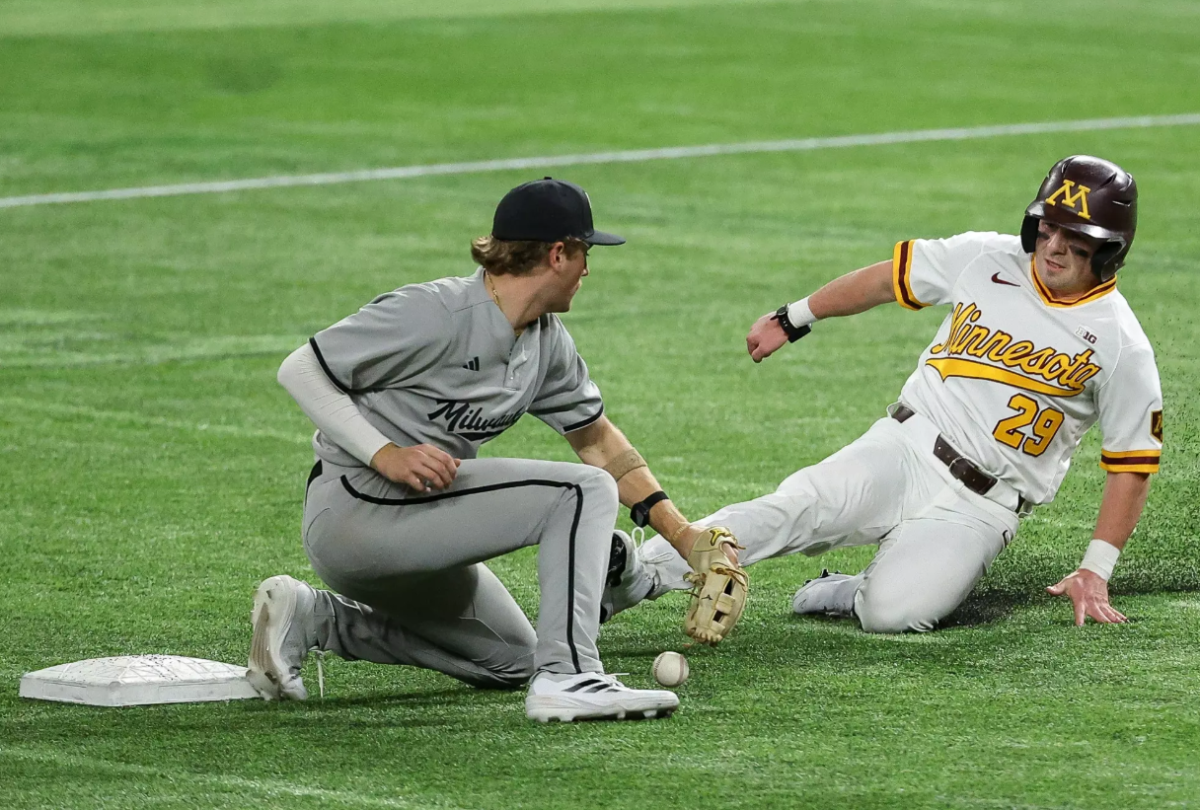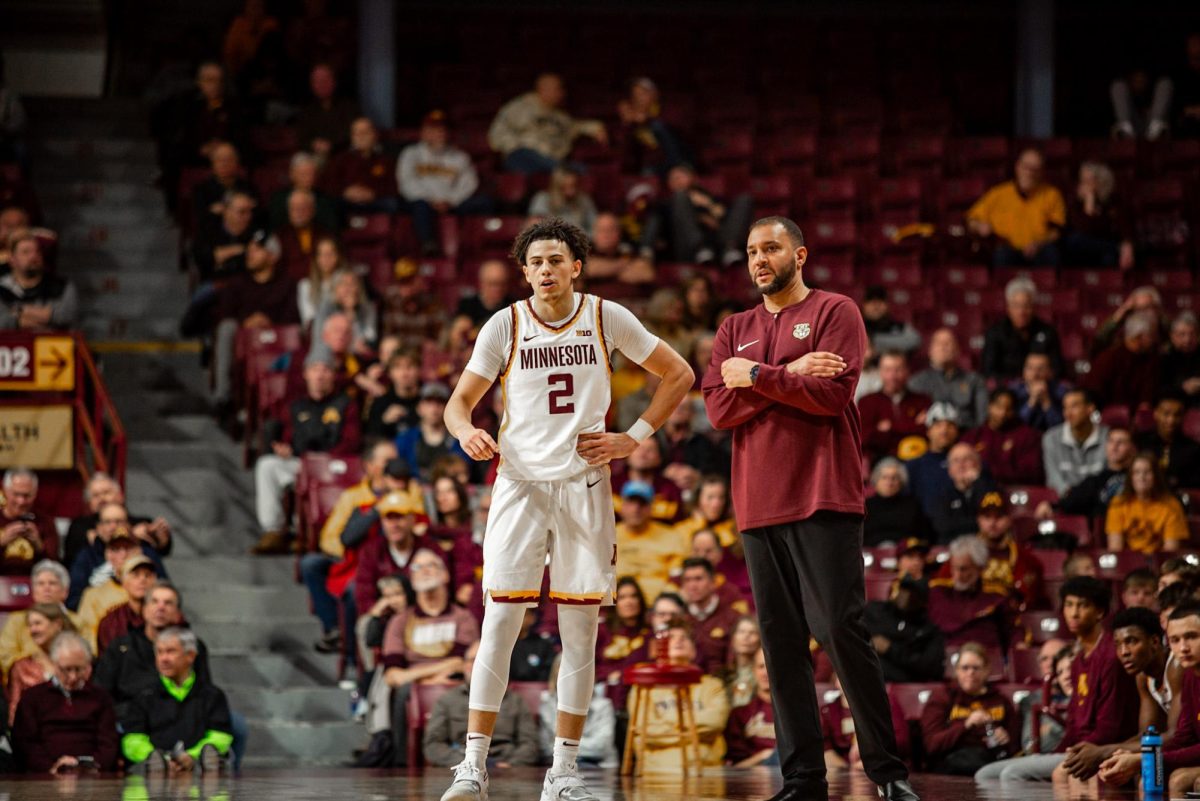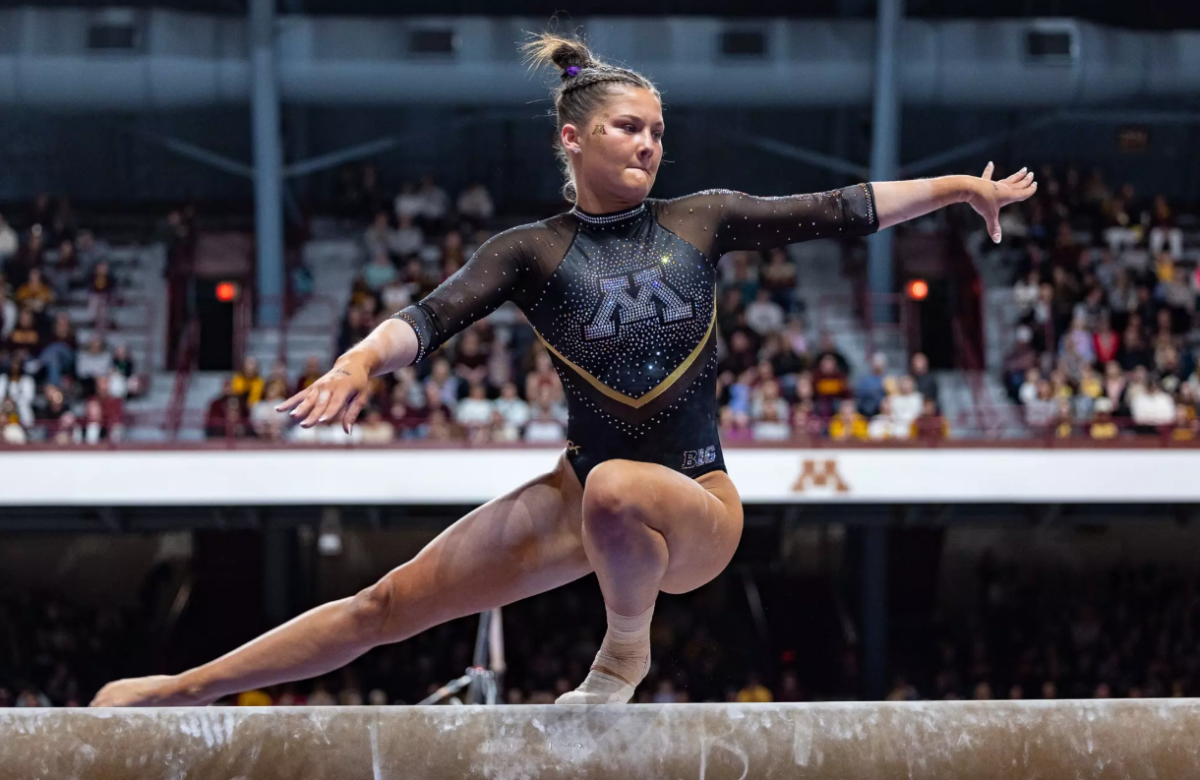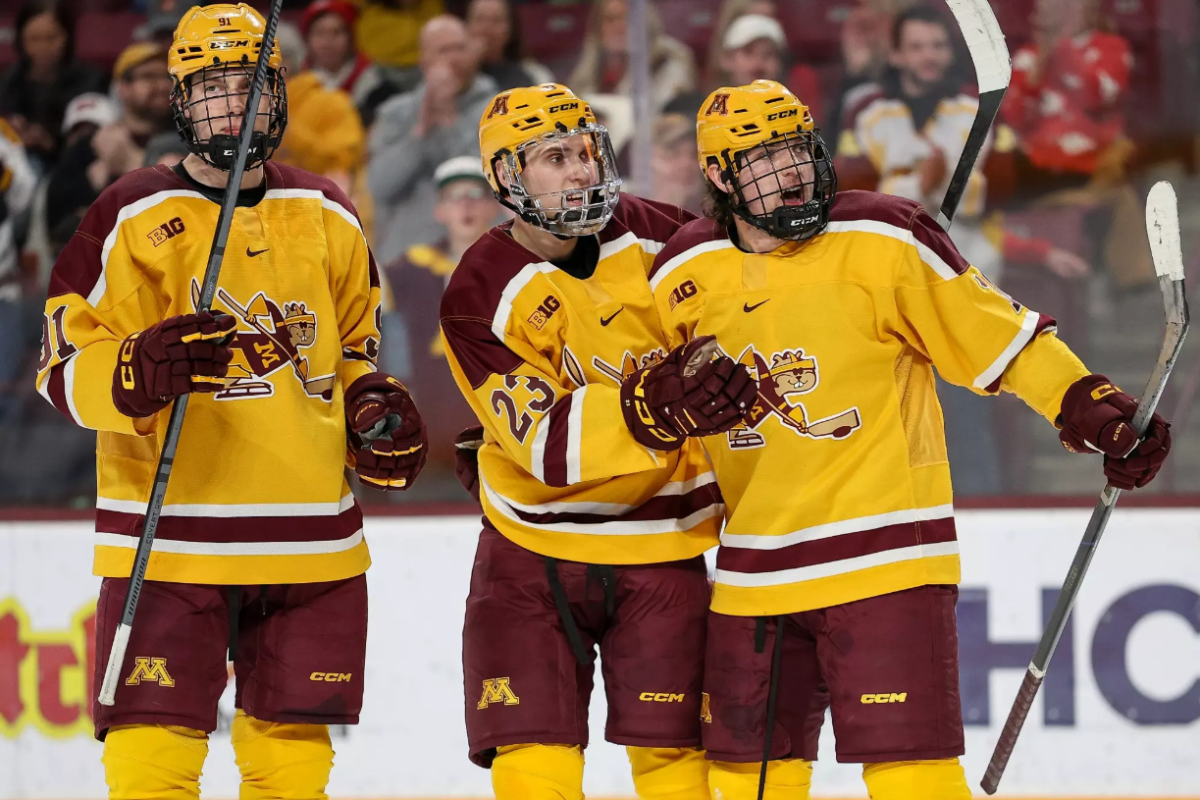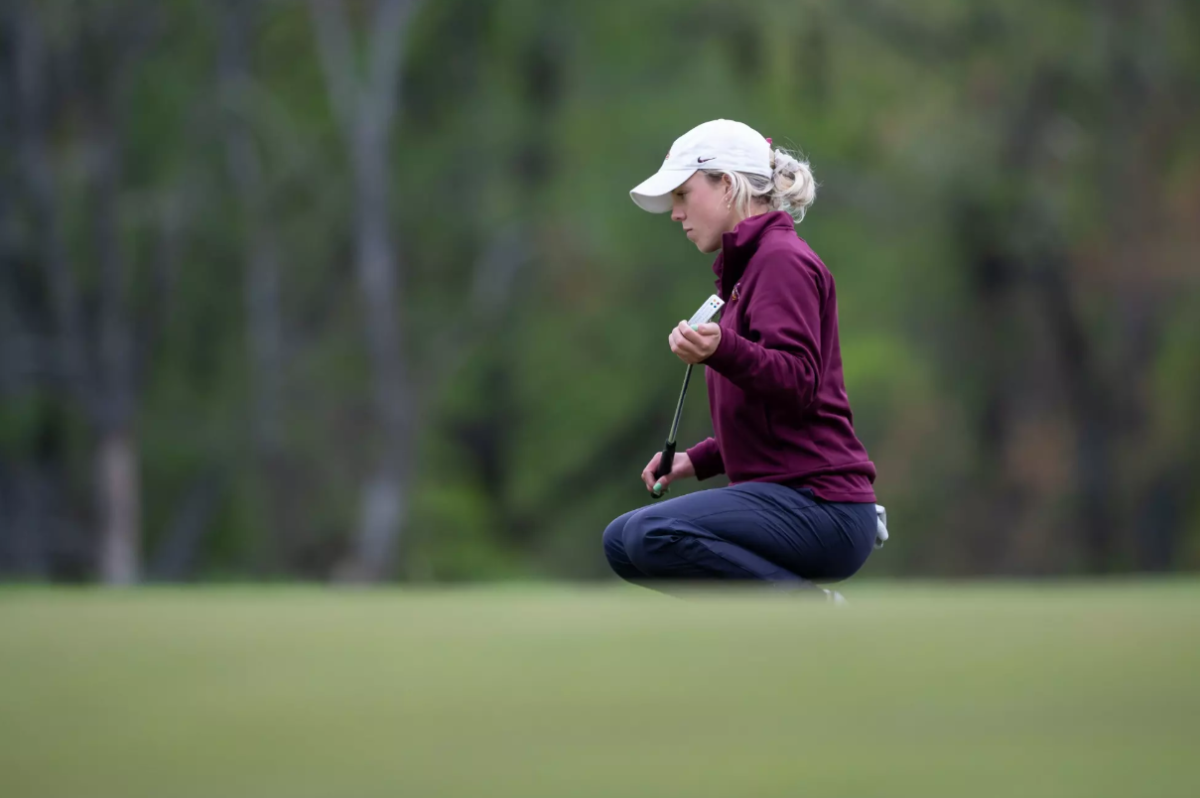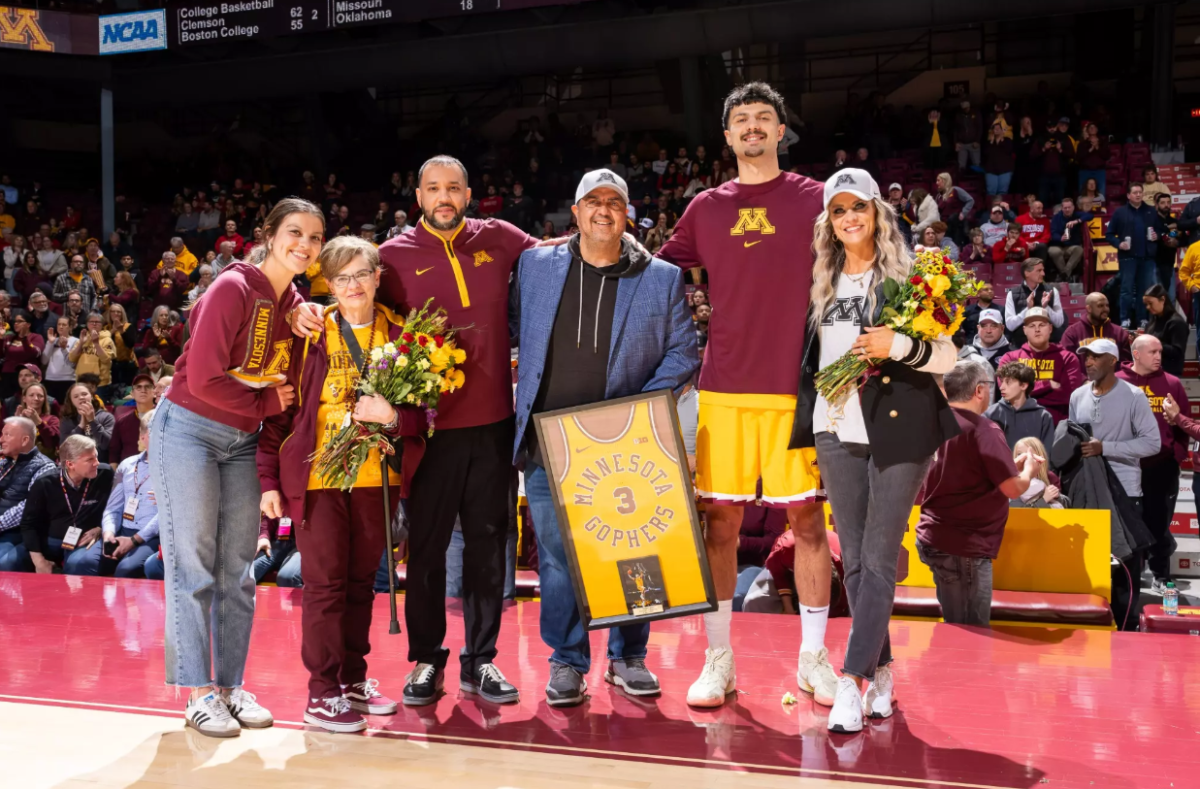Following the events last Sept. 11, Minnesota quarterback Asad Abdul-Khaliq, a devout Muslim, feared the repercussions or reactions he might face as people sought revenge for the terrorist attacks.
Osama bin Laden and his organization al-Qaida, largely thought to be responsible for the attacks, are Muslims. Abdul-Khaliq said he thought people would group all Muslims together.
Instead, Abdul-Khaliq saw the opposite.
“People up here have shown me so much support, especially when it happened last year,” Abdul-Khaliq said. “I was kind of worried that people would look at me. But they didn’t, they kind of rallied together and brought me in with them. It was good to feel that kind of comfort around everybody.”
Abdul-Khaliq said he detested the attacks, no matter who was responsible for committing them. He said one of his main concerns was how people, knowing he was a Muslim, would believe he agreed with the actions or found them pleasing.
“A lot of people would ask how they could do that,” Abdul-Khaliq said. “But, that’s not part of Islam. We do not believe that you are in charge of taking someone’s life whenever you want to.”
“To me, and anyone who is a true believer, that isn’t Islam. It is not for you to judge how you should take out people. It’s just ridiculous. People should understand that is not true Islam. People who did that will, hopefully, face the consequences.”
Religion wasn’t the only connection Abdul-Khaliq had to the terrorist attacks. He comes from Elizabeth, N.J., just across New York Harbor from Manhattan.
His family still lives there and he has three aunts who worked in or near where the towers once stood.
“My mom works across the river and they could see it from where she works,” Abdul-Khaliq said. “You can see it on TV but to see it in live, color pictures is just something else. To see the Twin Towers fall is just something that is unthinkable. You would never think somebody would try something like that. I think people on the east coast felt it a lot worse than we did here.”
Last September, Abdul-Khaliq was sitting in his dorm room with his wife when teammate Jermaine Mays called and told him about the first plane hitting one of the towers.
Abdul-Khaliq then turned on his television as another plane was about to hit the second tower.
“We thought maybe the plane had malfunctioned or something,” Abdul-Khaliq said. “Then, when the second plane hit, we knew this was no coincidence. We were just sitting there shocked. We didn’t blink for about an hour.”
Once the immediate shock had subsided, Abdul-Khaliq tried to phone his family. He was concerned about his three aunts but couldn’t get a hold of anyone because of busy phone lines on the east coast.
“It was really suspenseful,” Abdul-Khaliq said. “I knew my aunts worked over there and when we finally got through to them, it was the next day or something.”
Abdul-Khaliq was spared extra mourning. Each of his aunts had not gone to work that day, an action which might have saved their lives.
Abdul-Khaliq said in the post-Sept. 11 world, the nation has become more aware of terrorist action. Even Tuesday, before he made his way to the Bierman players’ lounge to meet with the media, Abdul-Khaliq heard that national security levels had been heightened.
Amid his normal routine of classes and practice, Abdul-Khaliq is aware that life can change at any minute.
A little over a week ago, Abdul-Khaliq lost teammate Brandon Hall after Hall was shot in a late-night exchange in downtown Minneapolis.
Before Saturday’s game against Toledo at the Metrodome, the Gophers will recognize both Hall and those who died last September.
There will be a moment of silence before the game, but Abdul-Khaliq will not focus on the negatives that have hit him, his team and the nation this past year.
“I am going to take the time out to remember what happened and how hopefully, it will never happen again,” Abdul-Khaliq said. “Brandon, he is going to be with me forever. So, I am going to take the time and try to rejoice a little bit and think about some good things.”


